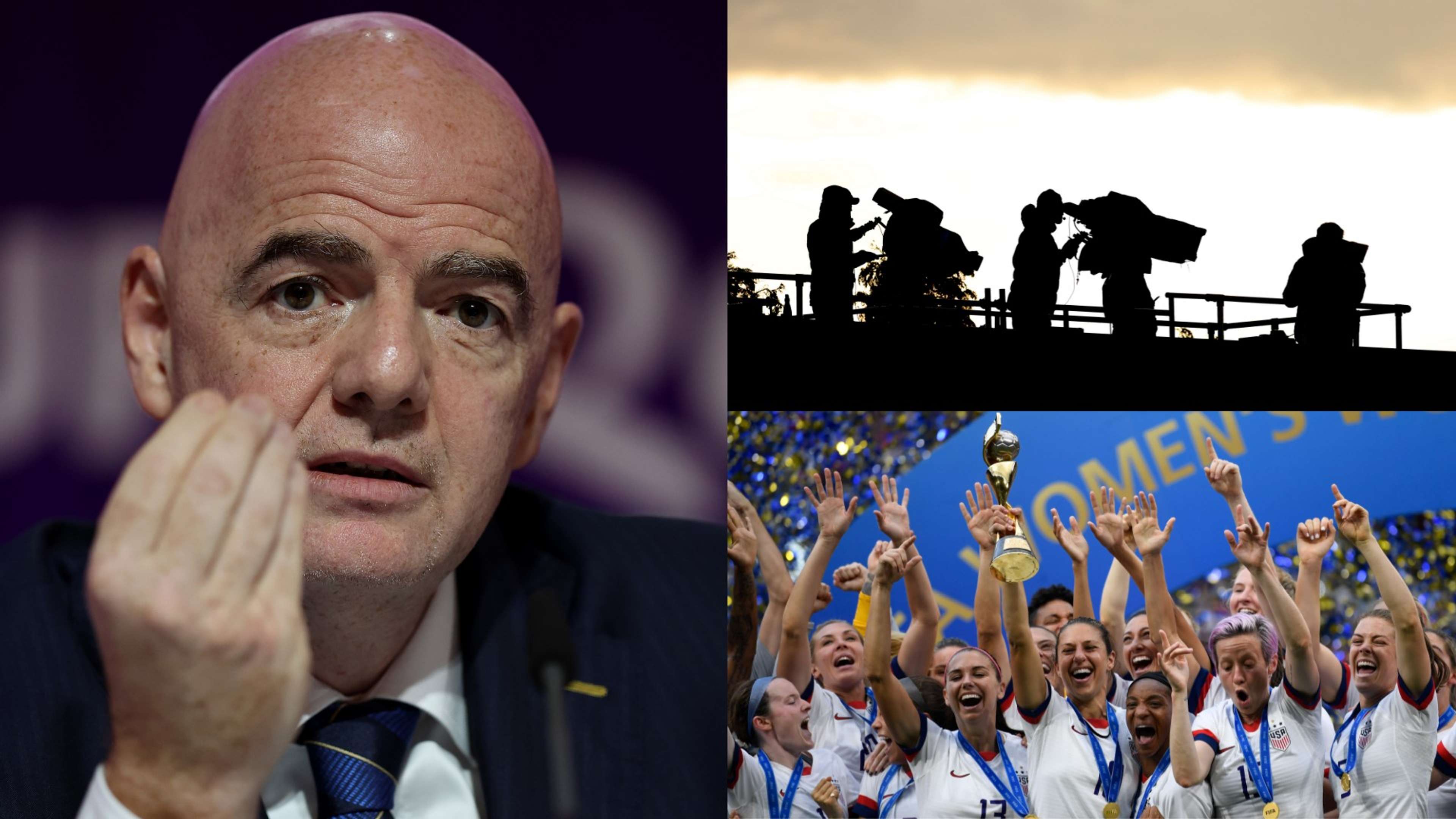- World Cup starts in less than three months
- Infantino threatened broadcasting blackout
- Governments urge stakeholders to reach agreement
WHAT HAPPENED? The joint statement comes after FIFA president Gianni Infantino threatened a blackout for this summer's showcase tournament. Football's governing body is selling broadcasting rights for men's and women's editions separately for the first time this year. However, Infantino singled out broadcasters from Europe's 'big five' countries for their offers of $1-10 million (£800k-£8m). These fall well below the $100 million-$200 million (£80m-£160m) splashed out for the men's game, which he described as "a slap in the face" for the "players" and "all women worldwide".
THE BIGGER PICTURE: Now, governments of those same countries have urged broadcasters to "quickly reach an agreement" with FIFA, as they feel it is their duty to "fully mobilise all stakeholders". Beyond the 1.5 million tickets sold for in-person viewing, it has been suggested that up to two billion viewers will be watching on various broadcast channels, highlighting the severity of the issue and the need for a swift conclusion. The main difficulties up to this point arise from its location in Australia and New Zealand, as many kick-offs will not coincide with 'regular' times in a European setting.
WHAT THEY SAID: A statement on the U.K. Government website, signed by the U.K., Germany, Spain, France and Italy, reads: "We, as Sports Ministers of European countries whose women’s national football teams have qualified for the FIFA Women’s World Cup... have acknowledged with concern that until now, no television rights have been attributed for the matches broadcasting in our countries. We are aware of the legitimate interests and budgetary constraints pressuring both assignees and independent broadcasters, who need a viable economic model for each of them. We also recognise the specific organisational constraints that are likely to affect the “market value” of the European broadcasters’ rights (period and hours of broadcasting).
"However, we are convinced that the media coverage of the Women’s World Cup will be decisive in improving the global visibility of women’s sports in our European countries. Media exposure to women’s sports has indeed a highly significant impact on the development of women’s and young girls’ sports practices. Because of the high potential of the FIFA Women’s World Cup and the sport and social issues at stake, we consider it our responsibility to fully mobilise all stakeholders, for them to quickly reach an agreement. These are decisions for FIFA and broadcasters to take independently, but we know that discussions are in progress and we are confident in FIFA and independent broadcasters’ capability to find a common path toward fair development of the FIFA Women’s World Cup."
IN THREE PHOTOS:
 MTI/Lakatos Péter
MTI/Lakatos Péter Getty
Getty Getty Images
Getty ImagesWHAT NEXT? The World Cup starts with New Zealand versus Norway on July 20, leaving broadcasters across Europe less than three months to reach an agreement with FIFA. Their ability to show matches will be all the more crucial given that England, Germany and Spain - alongside the USWNT - are among the favourites to go on to glory.
